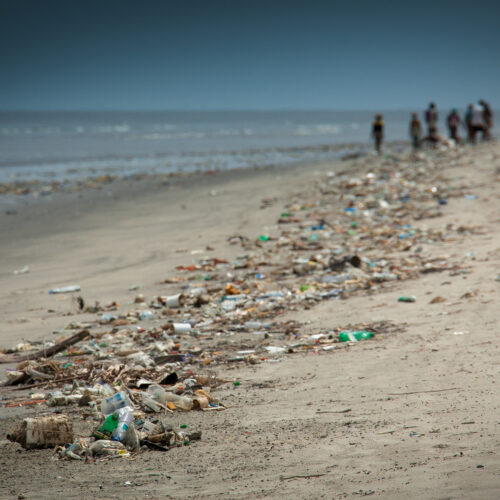Ocean plastic pollution has reached a crisis level, threatening the world’s delicate marine ecosystems, major industries such as fishing and tourism, food security, and ultimately human health. Every minute, the equivalent of an entire garbage truck of plastic makes its way into the world’s oceans—roughly eleven million tons annually.
USAID’s Approach to Reducing Ocean Plastics
Stopping plastic pollution at the source is the most effective way to address this challenge. The majority of plastic ocean debris comes from rapidly growing cities and towns along rivers and coastal areas in the developing world — where waste management systems, infrastructure, and governments struggle to keep pace with growing populations and increasing amounts of waste.
Per the 2020 Save our Seas 2.0 Act, USAID will prioritize efforts to reduce plastic waste by improving the capacity of and encouraging private sector investment in solid waste management systems and strengthening policies and incentives to shape behaviors for the 3Rs (reduce, reuse and recycle). USAID is leveraging its extensive networks, expertise, and global experience for a collaborative, cross-sectoral approach in working with cities and local governments to promote locally-led solutions and women’s economic empowerment, and engage the private sector in addressing the plastic waste challenge and promoting a circular economy.
A Focus on Cities and Local Systems
Waste management is typically the responsibility of local governments, which are often under-resourced. Solving the problem of ocean plastics requires strengthening local waste management and recycling systems. USAID builds the capacity of local governments to promote 3Rs—reducing, reusing, and recycling—while better monitoring and managing their solid waste. USAID also improves collaboration among the local actors responsible for waste management and recycling. To empower and improve the livelihoods of the millions that are involved in the waste management sector, USAID supports training for independent waste collectors, connects them to strengthened recycling markets, and engages community-based organizations, women’s organizations, schools, and small businesses who are instrumental in creating behavior change.
Where We Work
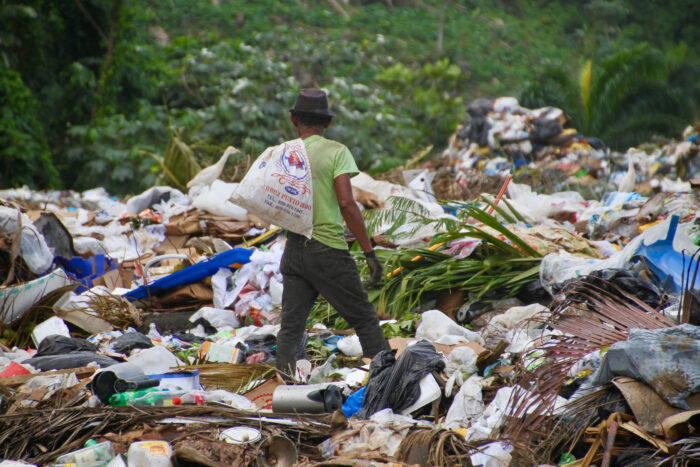
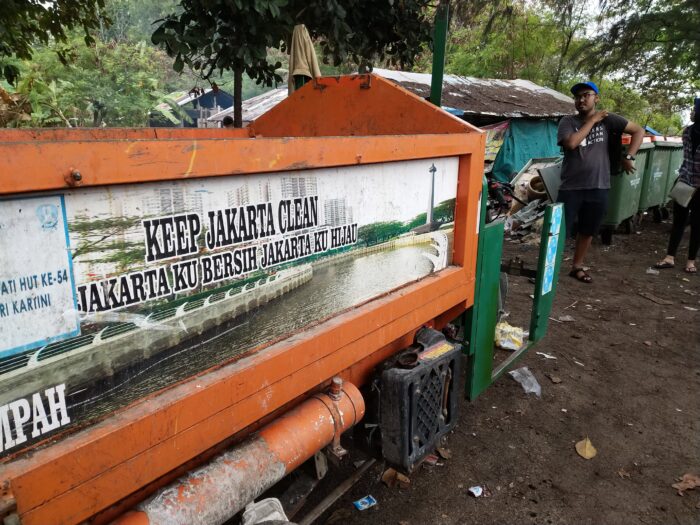
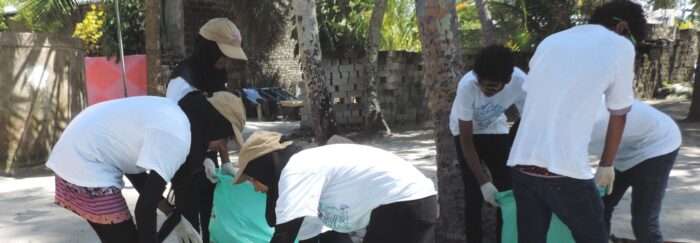
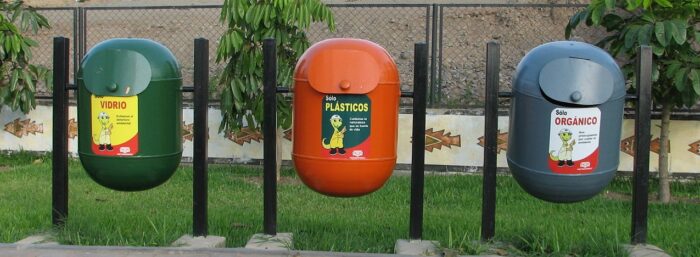


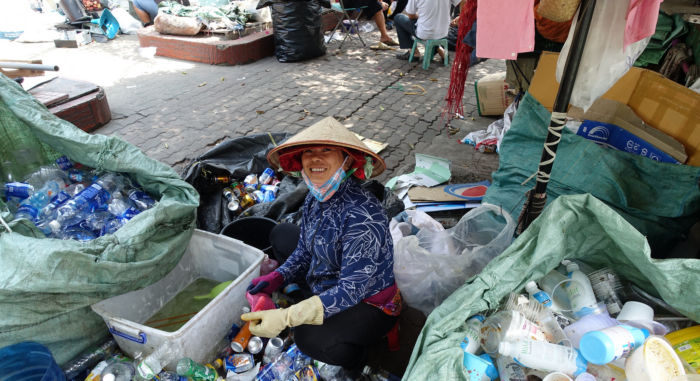
Partners
The private sector is involved in all stages of waste generation, collection and processing, and can play an integral role in reducing and better managing plastic waste. Waste management solutions offer tremendous potential for innovation, economic growth, and job creation. Recognizing this opportunity, USAID partners with the private sector to identify, develop, and finance market-driven solutions that strengthen the plastics recycling industry value chain while empowering women and youth, building social inclusion, and strengthening resilience.
USAID is forming strategic private sector partnerships with multinational corporations, national and local businesses, and organizations. USAID’s Clean Cities Blue Ocean program bridges public and private sector interests and resources for high-impact, accelerated sectoral transformation through locally-appropriate technologies, infrastructure, and business models.
Following the U.S.-Korean Presidential Summit of May 2021, USAID and the Korean International Cooperation Agency (KOICA) have formalized cooperation on marine debris and plastic pollution, beginning in the Philippines. KOICA and USAID are collaborating on providing assistance to the Government of the Philippines and selected cities of Metro Manila on the National Plan of Action (NPOA) for the Prevention, Reduction, and Management of Marine Litter (NPOA-ML).
Partnership with Circulate Capital
In June 2019, USAID launched an agreement leveraging more than $100 million in a private-sector investment strategy managed by Circulate Capital and funded by multinational companies, including PepsiCo, Procter & Gamble, Dow, Danone, Unilever, and Coca-Cola. USAID provides a $35 million, 50 percent loan-portfolio guarantee through the U.S. International Development Finance Corporation (DFC), which is used to incentivize private capital investment in the recycling value chain in South and Southeast Asia. At least 50 percent of the total facility must be used for loans in four countries that align with USAID’s MWRP (Indonesia, Philippines, Vietnam, and Sri Lanka).
Circulate Capital is now launching investments in companies like Tridi Oasis, an Indonesia-based, women-owned recycling company. Tridi Oasis recycles plastic bottles into new packaging and textiles that are made of 100 percent post-consumer, recycled plastic. This investment, backed by USAID and the U.S. International Development Finance Corporation, will enable the company to set up a larger recycling facility and expand operations to recycle additional types of plastic.
Key Programs
Clean Cities, Blue Ocean
USAID’s Clean Cities, Blue Ocean (CCBO) is the Agency’s flagship program on ocean plastic pollution. The five-year, global program (2019-2024) is working in rapidly urbanizing focal countries across Asia and Latin America to target ocean plastics directly at their source. CCBO works to improve solid waste management systems in areas that are at the heart of the global plastic pollution crisis, build capacity and commitment for the 3Rs, and promote sustainable social and behavior changes. In support of these objectives, CCBO partners with with national and local governments, members of the private sector, non-governmental organizations, and local women’s and youth organizations. For more information, contact info@cleancitiesblueocean.org.
Municipal Waste Recycling Program
USAID’s five-year (2016-2021) Municipal Waste Recycling Program (MWRP) reduces land-based sources of ocean plastic waste in four of the top five contributing countries— Indonesia, Philippines, Sri Lanka and Vietnam. Through MWRP, USAID has provided 30 grants and technical assistance to a variety of local actors, such as NGOs and recycling entrepreneurs, for innovative, local, and sustainable solutions to improve solid waste management and waste recycling efforts in and around targeted cities. As a result, people across the four countries are benefiting from cleaner and healthier cities with improved waste management services. Having recognized their effectiveness, local governments plan to extend and replicate these approaches.
For more information about USAID’s work on ocean plastics pollution, contact: oceanplastics@usaid.gov
Key Resources
See All ResourcesRapid Appraisal Facility Tool
Creating Economies of Scale for Plastics Recycling
Clean Cities, Blue Ocean Pacific Islands Fact Sheet
Clean Cities, Blue Ocean Maldives Fact Sheet
Clean Cities, Blue Ocean Philippines Fact Sheet
Women in Waste’s Economic Empowerment Activity: Empowering Women to Reduce Ocean Plastics
Advancing Climate Change Mitigation Goals Through Improved Solid Waste Management
Extended Producer Responsibility: A System for a Circular Economy
Insights & Updates
See All Insights & Updates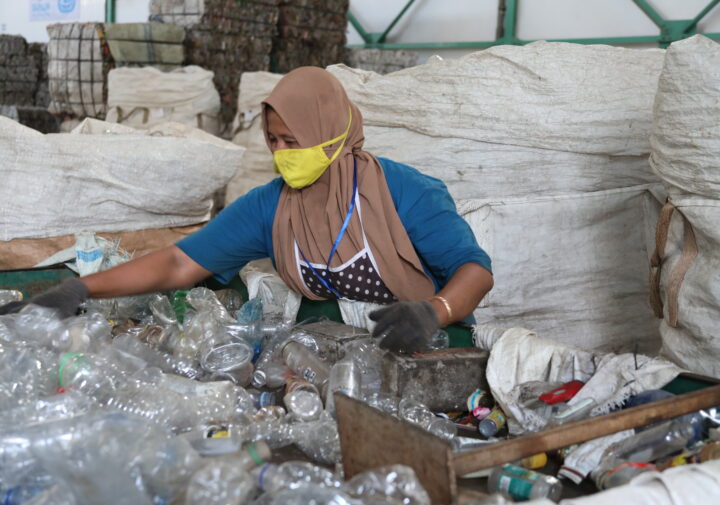
Charting Progress in 2023: USAID’s Highlights in Tackling Ocean Plastics
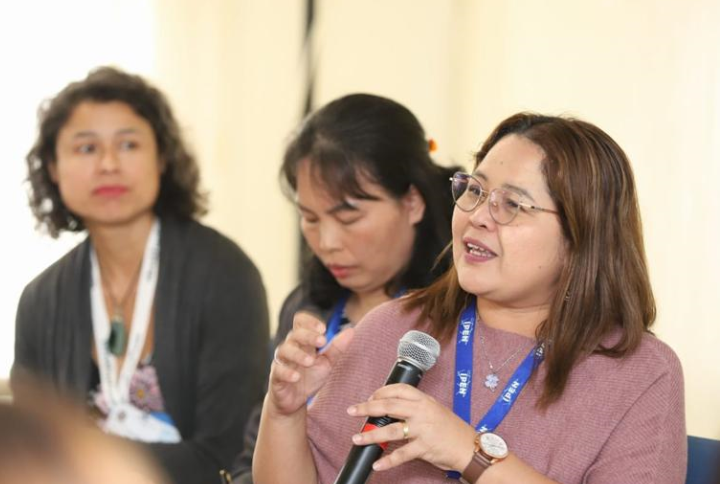
USAID Shares Key Recommendations for Developing Inclusive Extended Producer Responsibility Frameworks in Support of International Plastics Treaty Negotiations
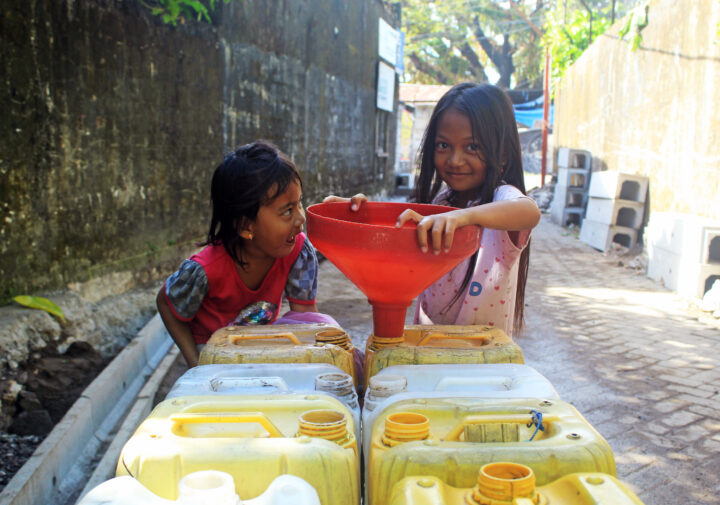
Announcing the Winners of the 2023 Urbanlinks Photo Contest!
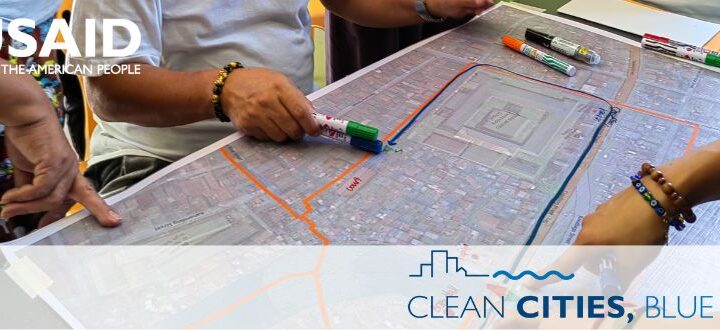
Upcoming Training: Identifying Funding Options for Sustainable Solid Waste Systems
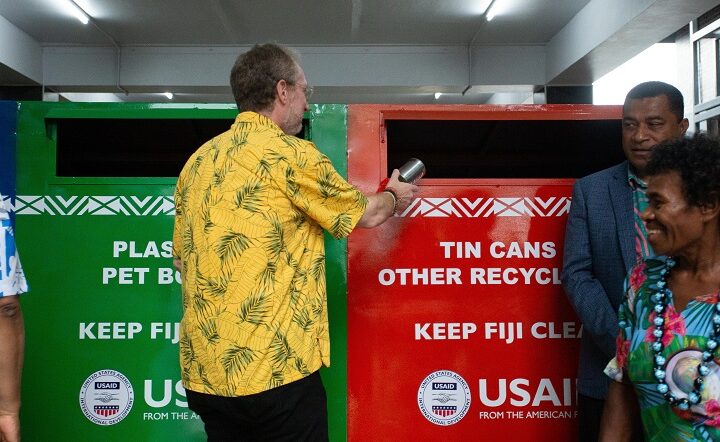
USAID, Waste Recyclers (Fiji) Pte Ltd, Pacific Recycling Foundation Launch
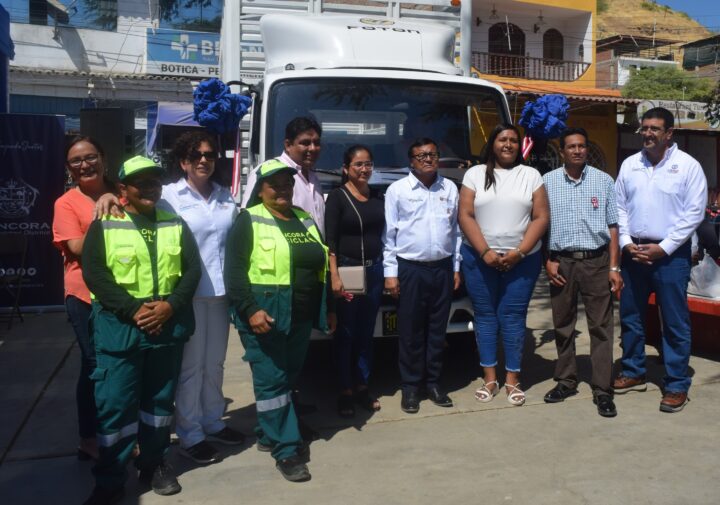
USAID Donates Vehicles to the Municipality of Máncora
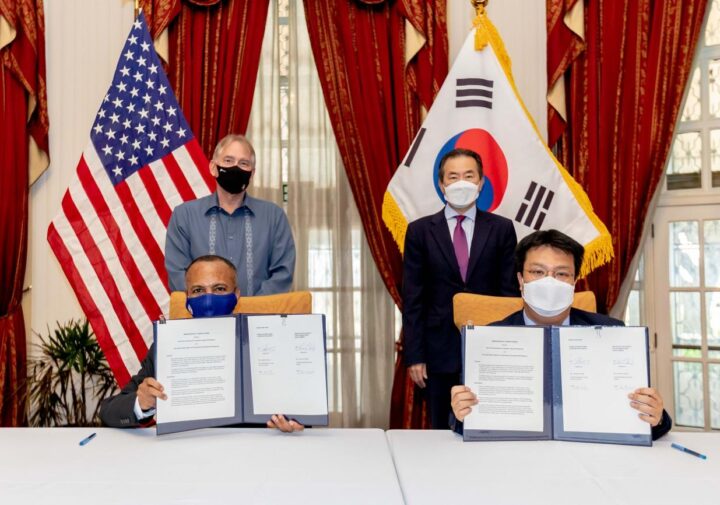
U.S. and Korea Strengthen Development Cooperation Partnership through Joint Projects in the Philippines
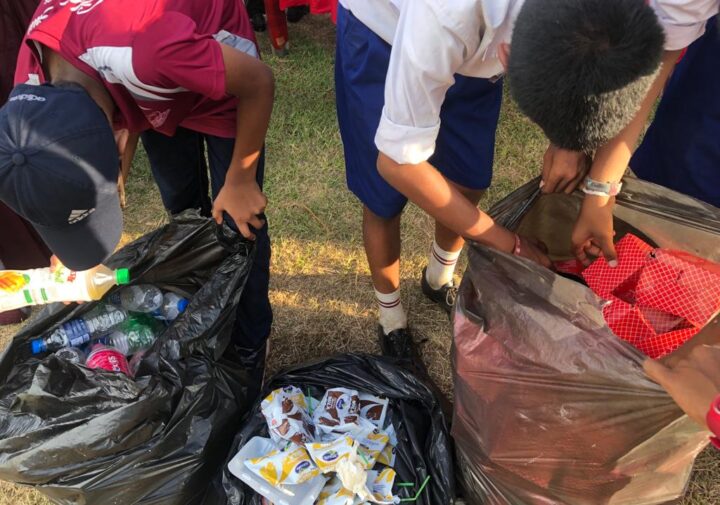
From the Field: Empowering Youth as Agents of Change to Reduce Ocean Plastic Pollution
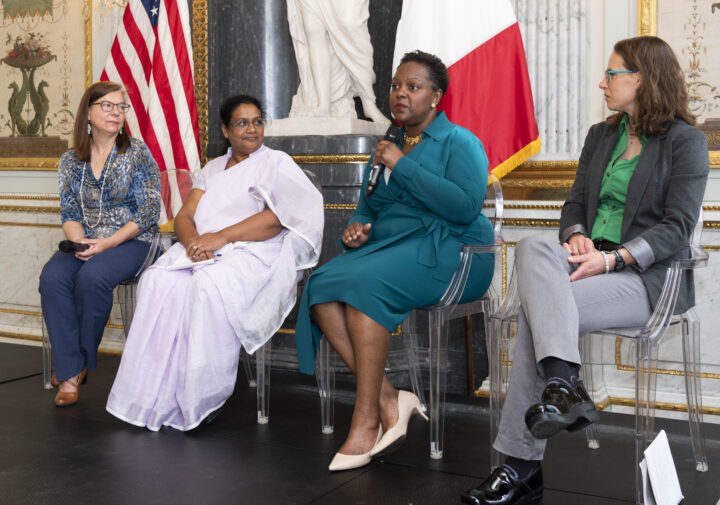
USAID Calls for Collective Action at Local and National Levels to Reduce Plastic Pollution
Projects
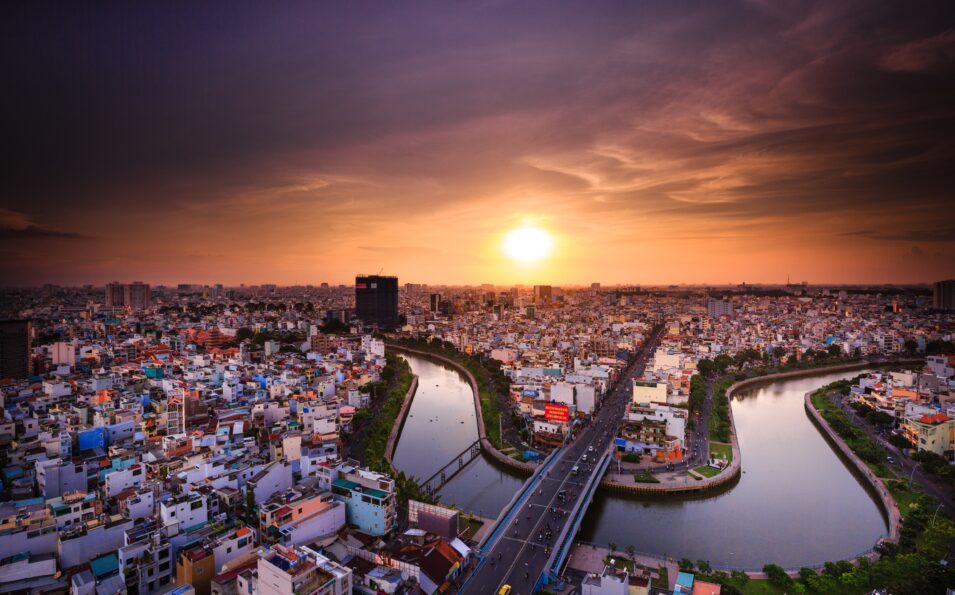
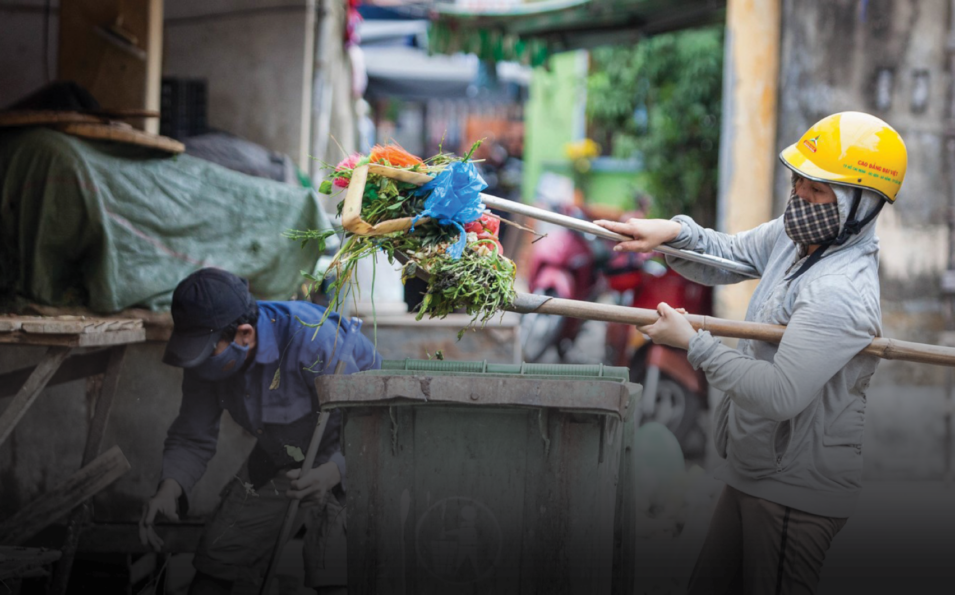
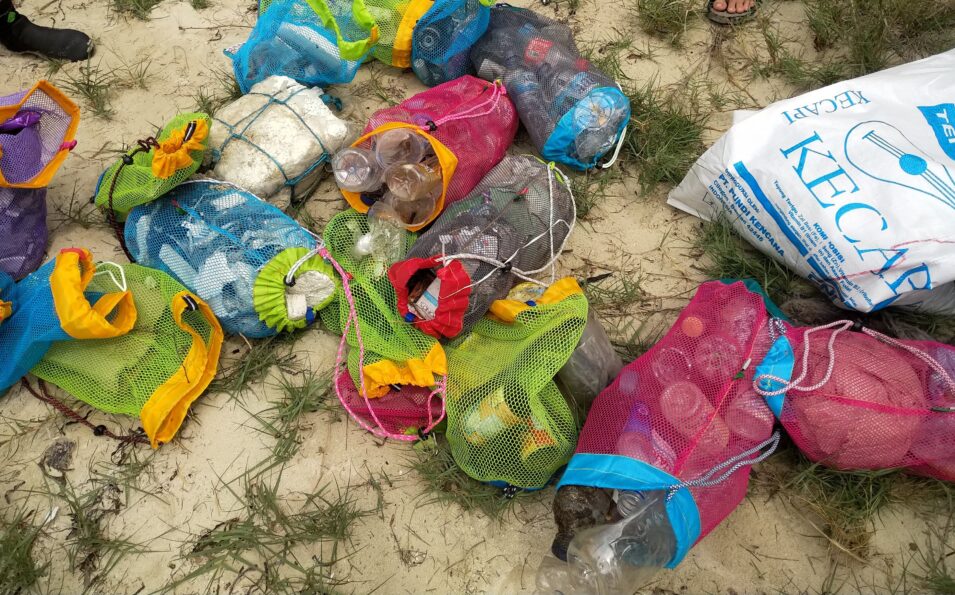
Sign up for the USAID Ocean Plastics Newsletter
Subscribe